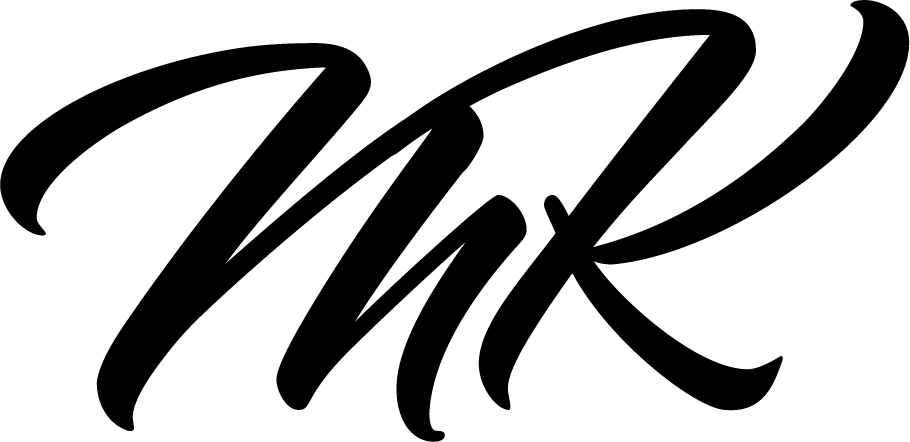
An incredible number of books have been written on this subject: how do you become productive, how to be REALLY productive, how to focus, how to be great at your job, how to stop procrastinating, how do you get rich, how do you become the perfect company.
Let me tell you; there is no secret recipe, just good inspiration. The bad news first: you have to overcome yourself to implement your perfect method.
What works: routine
Routine gives you security. Security makes you think less and faster.
- Have a document ready for everything. Know the shelf.
From mood boards, the cost estimate, to invoice templates, to payment reminders, everything sorted by year. The document for travel documentation, the logbook, the expected calculation for the year, as well as the matching real numbers with all items per month… There are many documents to prepare!
Have folderswith the most important documents:
- Insurances,
- Principal offices and chambers of crafts,
- Contracts,
- Purchases and their guarantees+ refunds/recycling programs,
- Medical documents/dokumentation,
- Your financial documentation of the past ten years,
- Proof of application or further education.
- Overview of which contracts have to be concluded each year and which are renewed automatically (even unwanted).
- Have the software ready for everything.
Have software where you can control your processes at any time and which reminds you not to forget things: alarm clocks, calendars, accounting software, job timing apps. - Fixed processes are key.
Imagine you have to explain to someone else how you always do things so that you two do it the same. As a result, you make many small decisions that make your work more consistent.
E.g., create actions always to export images for social media and have a system to consistently name all your files.
Do you have chaos on your computer? Maybe time to buy a new one and renew your system here. Or to buy a lot of cloud storage and develop a system there. This can be a real relief.
But never forget to rethink and optimize your routines. Nothing is worse than sticking to bad old habits and processes. - If-then plans.
If-then plans are a kind of strategic commitment. They put you in an alarm status when a certain moment or circumstance has come that makes productive action possible. An example: You receive a push notification from your bank account that payment has arrived. An if-then plan could be if a payment arrives, then I thank the customer for the received payment (and quick transfer) and update my financial documents.
To sum it up, you can get rid of bad habits and also introduce new good ones.
Schedule your day/week
Planning your day, week, or even months is quite complicated for the self-employed. Many unpredictable factors come together here (we only focus on those of business): job inquiries from concrete to vague, job cancellations, job postponements, spontaneous calls, and emails. Maybe even an unpredictable pandemic.
Things that help:
- Make promises, set time goals, and find someone before whom you have to justify your progress.
These are suddenly emerging obligations for which you have to do something and therefore have no excuse. This could also be state funding with guidelines, a business coach, a manager, a self-written business plan, or your best friend. Sit down at the end of the quarter or year and look back at what you’ve accomplished in the past period. - Always have a plan A, a plan B, and a plan Z.
The most important tasks are those that are directly connected to your business, obligations, and to-do’s that bring you money and pay your bills. These always have priority. But still have alternatives for the unpredictable things, obligations such as your monthly tax statements, the maintenance of your devices, backups, optimizations, further acquisition measures, and much more. - Know yourself.
You know at what times of the day you are productive for which tasks and when you need breaks. It starts with the sleep-wake rhythm: Are you a fresh lark, or are you one of the nocturnal owls? - Challenge yourself and your colleagues.
Challenge yourself and your colleagues. Take part in competitions. Or maybe attend to so-called 14- or 30-day challenges. Those can lead you to become sportier, healthier, and more productive. For example, you can learn languages faster, read more books, or listen to podcasts. - Time management.
Many tasks can be done in parallel. But be careful, don’t overwhelm yourself; otherwise, the quality of the tasks will suffer.
Back when I was still a student, I got the hint: work 1.5 hours, then take a half-hour break. You do this all day long until your well-deserved end of the day. The goals you set yourself in the 1.5 hours will make you significantly more focused and faster. The 30min breaks are for power napping, eating & drinking, for the toilet, the household, short private phone calls, and social media. So you have completed all tasks, both private and business, at the end of the day, do not sink into chaos and are less exhausted. Other people will accept these time frames and will bother and interrupt you less.
Stay motivated
- Nothing makes us more productive than motivation.
Lack of motivation and nothing works anymore. To do this, you have to challenge yourself and step beyond your comfort zone. Unknown places, unknown people, and sometimes unfamiliar activities. This also applies to your free time if this is sometimes not possible in your day-to-day job routine. Surprise yourself, develop a bucket list of things that delight you, and challenge you, let you grow personally. - Everyone needs their balance.
Try to avoid having very grueling and tiring phases for too long. Make a list of things that fill your energy storage again. Even small things like a cold shower, a vitamin-rich drink, 10min sunbathing, a face mask, or a foot bath with minerals. You should get this list out at least once a week and treat yourself to a special day. Do not forget to include time, for example, for sporting activities in nature or with people who are close to you. - Declutter yourself.
Sometimes I have the feeling that over time things, documents, notes accumulate or simply grow old. Then it’s time to clear out. Make sure to reorder, restructure, remodel, and renew certain places in your work area at least once a month. One useful option would be to create zones for different tasks. This can be liberating and give you the feeling that you have a complete view. With the new order, you avoid messy environments and losing valuable minutes searching for electronics, important documents, or files. Plus, almost forgotten things are back in mind.
- Fight against getting tired.
To maintain concentration you need to adjust and fix several things:
The first thing is your lightning condition. Forget about headaches and eyestrains: Set breaks with natural sunlight.
Air Quality: Open the windows at least 3 times a day and think of the installation or maintenance of air filters.
Give yourself tasks during the day where you have to change your position, e.g. by scanning documents.
Gray wall paints make women unproductive. So if you are a woman and retoucher, rely a bit more on white and black. - The aromas have an impact on our mood.
Consider using fragranceslike lavender, mint, and citrus. Rituals, for example, is a very well respected brand and offers a lot of variations here
.
Do you have any suggestions, additions, is this post out of date, or have you found any mistakes? Then we look forward to your comment.
You are welcome to share this post. We are very grateful for every recommendation.
